*MANDATORY* ALL STAFF MUST COMPLETE PREVENTING COVID-19 INFECTION IN THE WORKPLACE TRAINING
Preventing COVID-19 in the Workplace is a new course that details the initiatives that the University is undertaking to prevent COVID-19 infection in the workplace and outlines how you can contribute. Please follow the link below to access the course via Workplace Learning:
https://wpl.ubc.ca/browse/srs/courses/wpl-srs-covid
Completing this course is mandatory for all UBC and Building Operations staff to complete. As of now, 72% of Building Operations staff have completed the course.
This course must be completed by all Building Operations staff by Friday August 7th
If you require help with registering for the course, please e-mail nicolas.banquero@ubc.ca to receive a step-by-step how-to guide. If you require assistance with booking a computer in our training room, please let your supervisor know as soon as possible so that we can arrange a workstation for you.
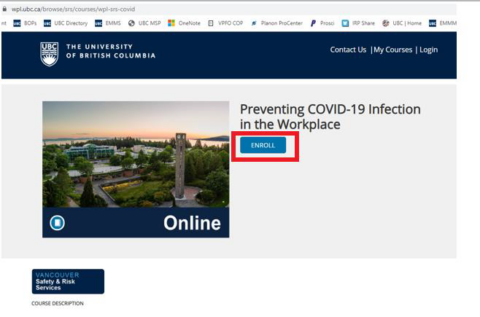
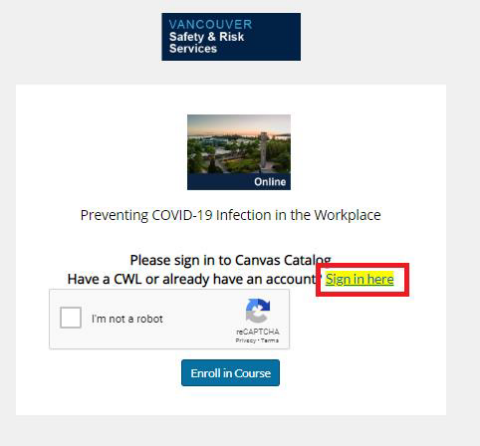
*Important – be sure you click “Sign in here” highlighted in yellow to take you to the Canvas sign-in page
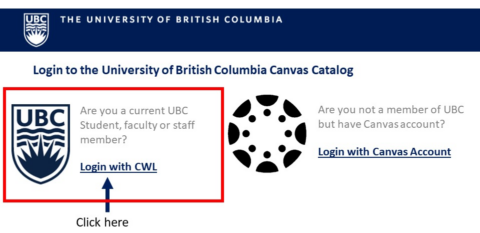
REMINDER – EMPLOYEES MUST FOLLOW THE GUIDELINES WITHIN ALL CAMPUS BUILDINGS AS WELL AS THE BUILDING OPERATIONS SAFETY PLAN
Occupying Buildings on Campus:
*Important*
Before commencing work employees must:
- Assess themselves daily for COVID-19 symptoms and stay home if they are experiencing symptoms or taking care of someone with symptoms.
- Should you feel ill while at work inform your supervisor and contact First Aid by calling 604-822-4444
The new social norms brought upon us by COVID-19 require that we change well ingrained social behaviors, especially related to personal space and keeping safe distances from others. While it can be difficult to remember and enforce at times, it is very important that we continue to respect the safety and well-being of others and be diligently mindful when occupying public spaces.
Adhering to occupancy rules and maintaining a safe distance of 2m (6 feet) from others is UBC policy and needs to be enforced when you are working within all buildings on campus. Please see below for guidelines in maintaining safe physical distance from others and occupancy guidelines while completing work on campus:
- Please ensure that you are following all of the COVID-19 protocols put in place by the University while on campus (see Preventing COVID-19 INFECTION COURSE, including maintaining 2m of space between yourself and others
- Occupancy in some spaces is quite limited and It is extremely important that maximum occupancy limits are adhered to when entering spaces to complete work
- When entering a building or a space to complete work, it is very important that you:
-
- Adhere to all signage posted within the building, which may include directional arrows and maximum occupancy signage to bring awareness to the space restrictions.
- Open the door and check the space for occupants before entering
- If there are people in the space, ask if it is safe to enter and complete your work at this time
- If it is not safe to complete your work and proper physical distancing cannot be practiced, arrange a time that works for both the building occupants and yourself to return to the space and safely complete your work
Safety Plan:
All staff are also to follow directives outlined within our Building Operations Safety Plan, including new operational procedures put in place throughout each building. Methods and practices outlined in the safety plan are in accordance with guidelines set by BCCDC to prevent the spread of COVID-19. Your self-compliance with the guidelines set out in the safety plan is of the utmost importance.
The safety plan includes a review of USB and Header House operational activities and directives to ensure effective controls are in place to prevent the infection from COVID-19. These activities include, but are not limited to:
- cleaning and hygiene
- following directional arrows/traffic flow
- maintaining physical distancing in buildings and vehicles
- adhering to entrance/exit signage
- compliance with maximum occupancy limits for meeting rooms, office spaces, kitchens and washrooms.
Non-compliance with our safety plan and any other relevant COVID-19 related policies or updated building procedures may result in loss of access to a particular space and could lead to discipline.
If you have not already done so, please review the safety plan for your building on the Staff tab of the Building Operations website
https://buildingoperations.ubc.ca/staff/
PLANON UPDATE: GETTING READY FOR GO LIVE
In preparation for Planon go live this fall, the project team is finalizing software configurations and testing functionality based on input from all areas of our operations. The project team is meeting with teams and shops to identify paper forms and spreadsheets which can be retired in favor of Planon electronic forms. Staff training will begin mid-September with hands-on keyboards or mobile devices depending on how you will use Planon to do your work. Watch for the training schedule in early September.
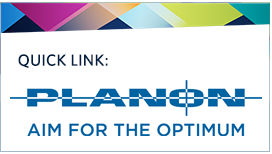
VACATION COMMUNICATION TOOLS
As we are now in summer vacation time, we want to remind you that if you have a UBC work phone and email, it is important that you complete the following two steps before going away, as these are essential steps in keeping our clients and Service Centre informed.
- Update your email out of office to reflect the dates that you are away from the university. Also any instructions directing the sender to an alternate contact while you are away. If they have an urgent matter in your absence this gives them the option of contacting someone else.
- Update your voicemail greeting to reflect the same information as above.
- Ensure that any alternate approvers are assigned to those covering for you
Please reference the links below for instructions if needed:
Please follow this link on Outlook on a computer. https://support.microsoft.com/en-ca/help/290846/how-to-use-the-out-of-office-assistant-in-outlook
Or if you are on FASmail for UBC Staff – https://it.ubc.ca/services/email-voice-internet/ubc-faculty-staff-email-fasmail/fasmail-usagetraining-guides
Voicemail
If you have a Telus phone – please follow this link https://www.telus.com/en/support/article/manage-use-record-mobile-greetings
If you have a Rogers phone – please follow this link https://www.rogers.com/customer/support/article/how-do-i-change-the-voicemail-greeting-on-my-wireless-phone
WHY KINDNESS MATTERS?
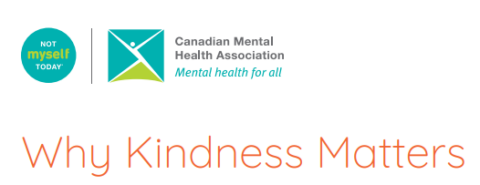
Kindness is broadly defined as the quality of being collegial, generous and considerate. Being kind is associated with many characteristics but at its core it is about showing warmth, care and concern for others. Being kind can be innate but it is also something that we can intentionally practices, and there are many good reasons to actively do so.
Kindness has been proven to release “feel-good” hormones (like oxytocin and serotonin) that make us feel more calm, happy, and energetic – and can also improve overall health and well-being by:
- Lowering stress levels
- Reducing anxiety and depression
- Preventing illness
- Reducing pain
- Strengthening relationships
The best part is that kindness has been shown to be contagious – it makes us feel good to simply see someone being kind (and it makes us more likely to “pay it forward”).
There is growing evidence that, in addition to the personal benefits, acts of kindness can enhance the wellbeing of employees and entire organizations.
Organizations that encourage staff at all levels to practice kindness as a core value tend to see:
- Improved work relationships and collaboration
- Increased job performance
- Higher job (and life) satisfaction
- Increased ability to cope positively with change or other stressful circumstances
To learn more about why kindness matters and some things that you can do to show kindness at work, check out the resource below.
THANK YOU FROM THE CHAN CENTRE
The Production Manager at the Chan Centre would like to pass along his gratitude for the great work performed by the Building Operations team:
“I just wanted to say a huge thanks for all of your special attention and extra efforts behind the scenes to get the Chan Centre Restart-ed in a hurry last week. The facility looks clean, feels welcoming, and Restart is going great. (I am cautiously knocking wood over here…)
It is a privilege that I don’t think any of us will forget any time soon to cautiously welcome our artists and visitors back to the Chan Centre for this first set of live recording sessions.”
Please pass along our gratitude to your teams!
WEEKLY TIP: DROP, COVER AND HOLD ON
Tip: Practice DROP, COVER, and HOLD ON, the appropriate action to reduce injury and death during earthquakes.
- DROP to the ground (before the earthquake drops you!)
- Take COVER by getting under a sturdy desk or table, and
- HOLD ON to it until the shaking stops.

For more information about the Great British Columbia ShakeOut happening October 15th, visit ShakeOut BC’s website at: https://www.shakeoutbc.ca/index.html